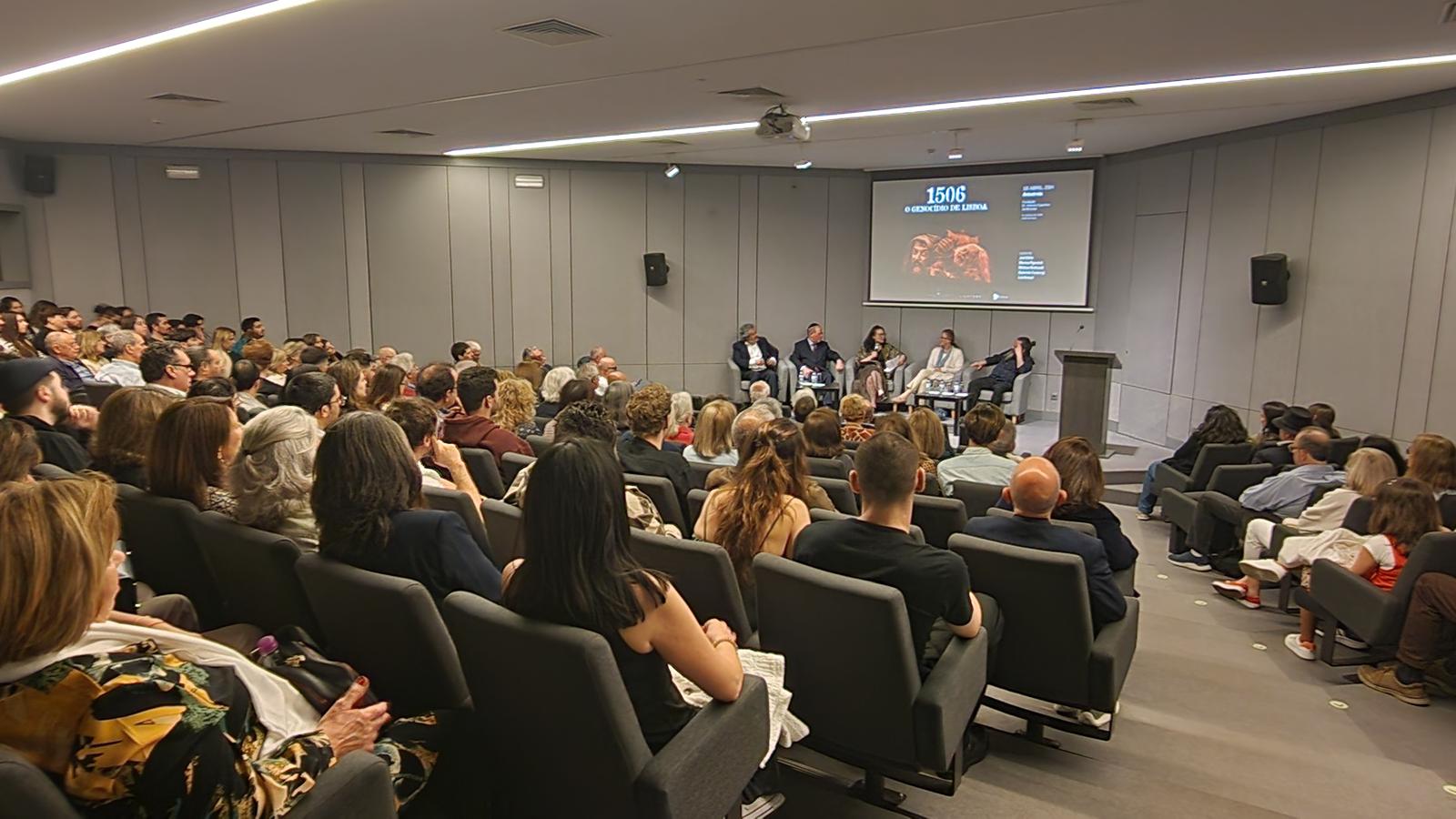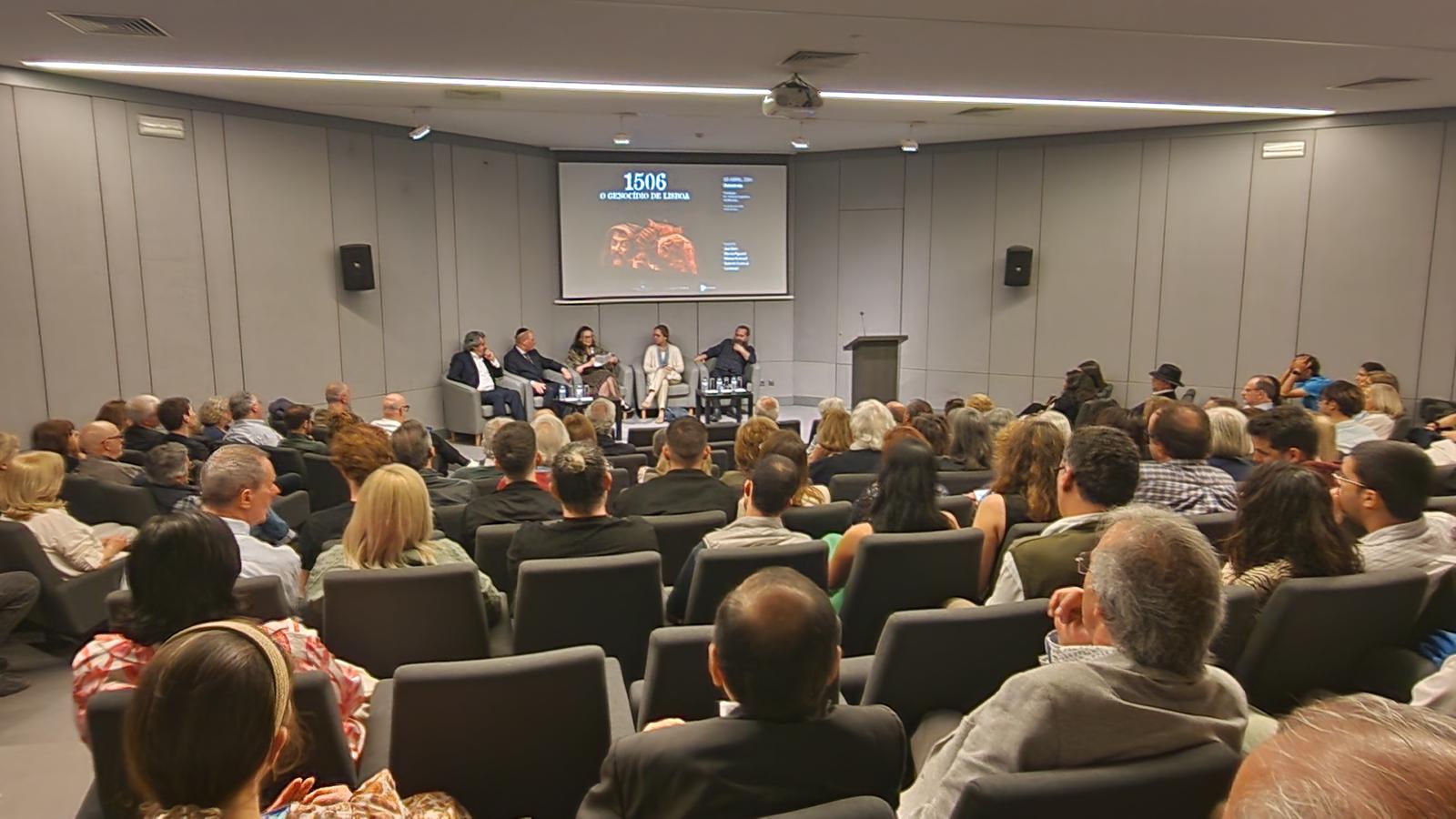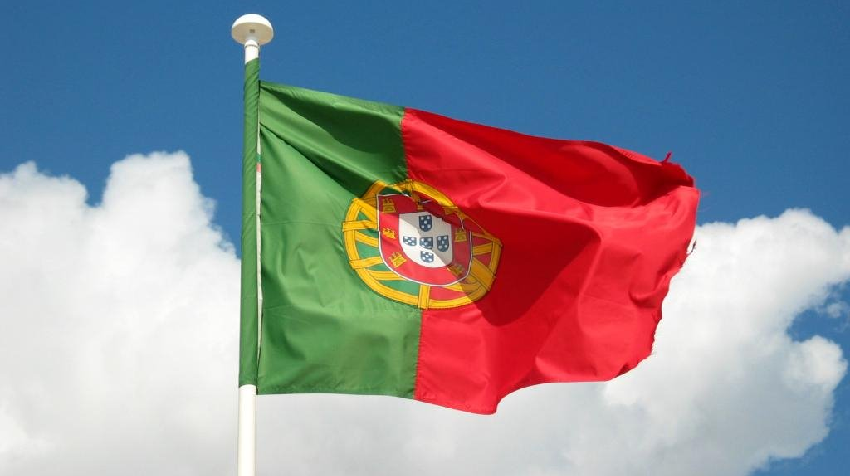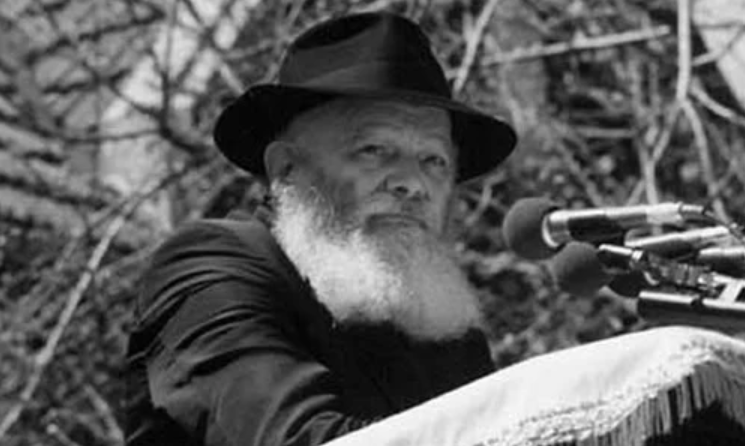Last night, 250 people were in the auditorium of the Cupertino de Miranda Foundation to watch the premiere of the film "1506 - The Genocide of Lisbon", which reports on the murder of more than three thousand Jews during the Catholic Easter of that fateful year.
The panel was moderated by the president of B'nai B'rith International, Gabriela Cantergi, and had as speakers Michael Rothwell (director of the Jewish museum in Oporto), Joel Cleto (historian), Luís Ismael (director) and Marina Pignatelli (anthropologist with scientific studies on the national Jewish community).
Rothwell explained that this film fits into the mission of promoting Jewish culture and history that the community has been developing over the last decade, with museums, films, a painting gallery, a musical choir and much more. He said that when he arrived from England almost half a century ago he had chills thinking about the York massacre in 1190 and the Nazi death camps that murdered his grandparents. But when he learned of the genocide of 1506, he was shocked by the fact that the Portuguese in general had no idea what had happened.
Asked about the inclusion of the term genocide in the title of the film about the events of 1506, Michael Rothwell explained that people should read the 1948 Treaty of Rome to know that the criterion for defining genocide is not numerical, but rather that of the attempted extermination, even if at local level, of a people or part of a people. He concluded with a lesson from history: "In security terms, Jewish communities depend on their own selves and on the existence of the State of Israel itself."

Rothwell's words were supported by the debate moderator, Gabriela Cantergi, who explained her suffering regarding the film. Her family has always been tormented by the genocides in Odessa and Kishinev, which is why they migrated to Brazil. Cantergi also, when she arrived in Portugal nine years ago, saw the total ignorance of the population not only in relation to the events that occurred in 1506, but also in relation to the Holocaust. There is no doubt that Jewish communities must be prepared to defend themselves, and count on the support of Israel, because national and international political authorities are always changing and so are circumstances.
Joel Cleto, a well-known Oporto historian, defined the film "1506 - The Genocide of Lisbon" as "a masterpiece" in terms of historical accuracy, image and achievement. He underlined that the screenwriter did an impeccable job, having managed to reduce in a short time a highly complex reality, which involves religion, politics, social conditions, historical period and much more.
Director Luis Ismael was asked about the technical difficulties he faced in order to produce a film of such great importance and quality. The director began by explaining that the film and all its stages - pre-production, production and post-production - were made in record time, as the producer (Comunidade Judaica do Porto) wanted the trailer ready by the end of December. And the film premieres on April 19, 2024.
Ismael gave some examples of the difficulty of the work he had at hand. As the city of Lisbon from 1506 no longer exists, it was necessary to find similar locations, scenes and furniture (real or produced in three dimensions), which involved visits and meetings at the Lisbon museum and other places. It was necessary to teach the actors and even the extras about the genocide environment that was experienced centuries ago, which they would have to know how to represent without fail. It was also necessary to dress hundreds of people in period clothes (costumes that were very difficult to find or produce) and take care of the makeup of that entire crowd of people. And finally it was necessary to film in the month of November, on the few days that it didn't rain. There were many obstacles, but it was worth it.
Finally, anthropologist Marina Pignatelli congratulated Oporto’s Jewish Community for the large-scale cultural work that it has been doing for several years. She said that the production of this film is superb work and much needed for teaching, especially in schools and universities. Pignatelli says that anti-Semitism will always be present in Portugal and that she was surprised, more than 20 years ago, when she interviewed hundreds of young people about their feelings about Jews. Among countless response options (marry a Jew, work with a Jew, have a Jew as a best friend, etc.), young people tended to choose the last and worst answer: "put the Jews out of the country."
The event ended with an audible round of applause. The audience left the space with the feeling that the event was worth it.


































